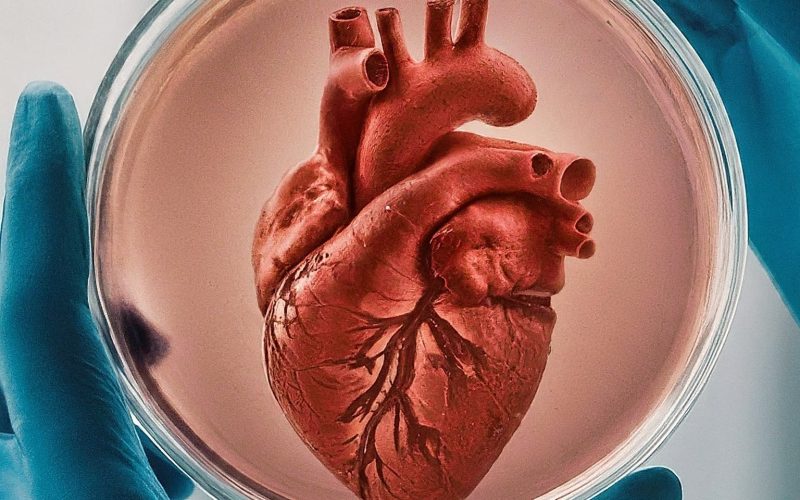Introduction
Heart disease remains a leading cause of death worldwide. However, the landscape of cardiovascular treatment is undergoing a remarkable transformation. As a seasoned healthcare journalist with a passion for uncovering medical breakthroughs, I’m excited to delve into the latest advancements that are revolutionizing heart care. Let’s explore the innovations that are reshaping the future of cardiovascular health.
The Evolving Landscape of Cardiovascular Disease
Heart disease, a silent killer, continues to be a major global health challenge. However, the landscape of cardiovascular treatment is undergoing a dramatic transformation. Medical advancements are redefining how we prevent, diagnose, and treat heart conditions. From minimally invasive procedures to personalized medicine, these breakthroughs offer new hope for patients and their families.
Minimally Invasive Procedures: A New Era of Heart Surgery
Traditional open-heart surgery, while effective, often involves significant risks and a lengthy recovery period. Thankfully, advancements in medical technology have paved the way for minimally invasive procedures. These procedures, performed through tiny incisions, offer numerous benefits, including reduced pain, shorter hospital stays, and faster recovery times.
- Coronary artery bypass surgery (CABG): Once requiring a large incision, CABG can now be performed using robotic assistance, reducing trauma to the chest.
- Valve repair and replacement: Innovative techniques allow surgeons to access and repair heart valves through small incisions, minimizing the risk of complications.
- Ablation procedures: For arrhythmias, doctors can now use catheters to deliver precise energy to abnormal heart tissue, restoring normal heart rhythm.
These minimally invasive procedures have significantly improved the quality of life for countless patients, enabling them to return to their daily activities sooner.
Stem Cell Therapy: Repairing the Heart from Within
Stem cell therapy holds immense promise for repairing damaged heart tissue. These versatile cells have the potential to regenerate and replace damaged cells, improving heart function. Researchers are actively exploring the use of stem cells to treat heart failure, myocardial infarction (heart attack), and other cardiovascular conditions.
While still in its early stages, stem cell therapy has shown encouraging results in clinical trials. As research progresses, this groundbreaking approach may revolutionize the treatment of heart disease.

Personalized Medicine: Tailoring Treatment to the Individual
The era of one-size-fits-all medicine is giving way to a more personalized approach. Advances in genomics and genetic testing are enabling doctors to identify specific genetic markers linked to cardiovascular disease. This information allows for tailored treatment plans, increasing the likelihood of successful outcomes.
- Genetic testing: By analyzing a patient’s DNA, doctors can identify genetic predispositions to heart conditions, allowing for early intervention and preventive measures.
- Drug selection: Personalized medicine helps match patients with the most effective medications based on their genetic makeup, minimizing side effects and maximizing treatment efficacy.
- Risk assessment: Genetic information can be used to assess a patient’s overall cardiovascular risk, helping to prioritize preventive strategies.
As our understanding of the human genome grows, personalized medicine will become increasingly prevalent in cardiovascular care, leading to improved patient outcomes and a higher quality of life.
The Role of Artificial Intelligence in Heart Care
Artificial intelligence (AI) is revolutionizing the field of medicine, and cardiology is no exception. AI-powered systems are transforming how we diagnose, treat, and prevent heart disease.
- Image analysis: AI algorithms can analyze medical images, such as X-rays, CT scans, and MRIs, with remarkable accuracy, aiding in the early detection of abnormalities.
- Wearable devices: AI-powered wearable devices monitor heart rate, blood pressure, and other vital signs, providing valuable data for personalized healthcare and early warning of potential issues.
- Predictive modeling: By analyzing vast amounts of patient data, AI can identify patterns and predict the risk of heart disease, allowing for proactive interventions.
- Drug discovery: AI accelerates the process of drug discovery by analyzing molecular structures and identifying potential candidates for new heart medications.
As AI continues to evolve, its impact on heart care will only grow, leading to improved patient outcomes and a healthier population.
Preventive Measures: Protecting Your Heart for Life
While medical advancements offer hope for those living with heart disease, prevention remains the cornerstone of cardiovascular health. A healthy lifestyle, including regular exercise, a balanced diet, and stress management, is essential for reducing the risk of heart problems.
- Regular check-ups: Routine screenings and blood tests can help identify early signs of heart disease, allowing for timely interventions.
- Quit smoking: Smoking significantly increases the risk of heart disease. Quitting is one of the most important steps you can take to protect your heart.
- Manage weight: Maintaining a healthy weight reduces the strain on your heart and blood vessels.
- Control blood pressure and cholesterol: Regular monitoring and medication can help manage these risk factors.
By adopting a heart-healthy lifestyle and seeking regular medical care, you can significantly reduce your risk of developing cardiovascular disease and enjoy a long and healthy life.
Conclusion
The future of heart care is bright, thanks to groundbreaking advancements in medical technology and treatment approaches. From minimally invasive procedures to personalized medicine and the power of artificial intelligence, we are making significant strides in the fight against heart disease. By combining medical innovation with preventive measures, we can create a healthier future for generations to come.










